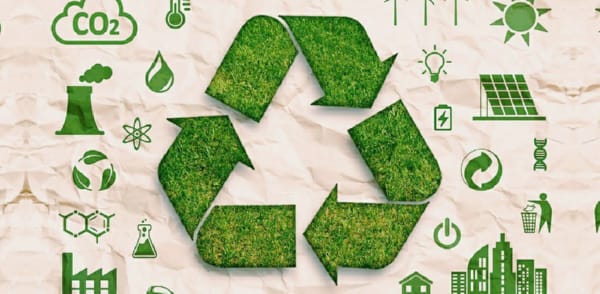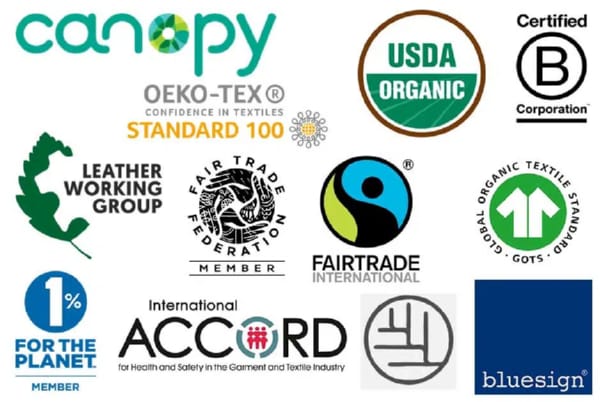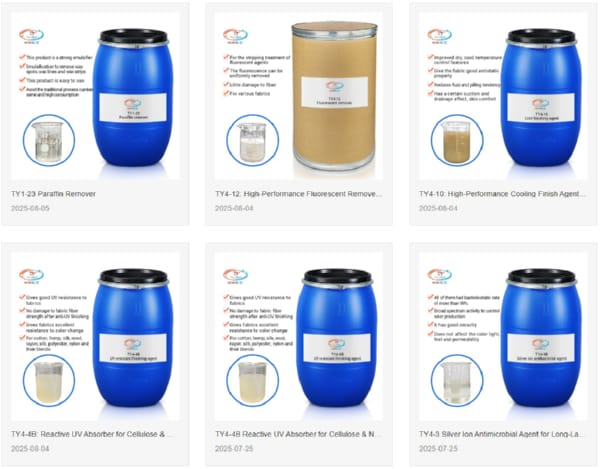

The textile industry is undergoing a profound transformation. Driven by conscious consumers and stricter regulations, the future of textiles is undeniably green. For manufacturers and brands, sustainable fabric finishing is no longer a niche option—it's a business necessity. This shift places a spotlight on the very building blocks of the process: the chemicals themselves. This guide will explore the world of eco-friendly textile chemicals, explaining what they are, the key certifications to look for, and how they are paving the way for a cleaner, safer industry. Partner with a leader in sustainable solutions to build a greener future for your brand.

The term "eco-friendly" can be vague. In the textile industry, however, it refers to specific, measurable characteristics. What defines "eco-friendly textile chemicals"? It's about a holistic approach that considers the product's entire lifecycle, from its composition to its impact on resources.
A key characteristic of a sustainable chemical is its biodegradability. This means that after its use, the chemical can be broken down by natural processes into harmless substances, preventing long-term pollution of water and soil. This is a fundamental aspect of green chemistry.
Eco-friendly textile auxiliaries are defined by what they lack. They must be free from restricted substances lists (RSLs) which include harmful chemicals like APEO (Alkylphenol ethoxylates) and formaldehyde. Using formaldehyde-free and APEO-free products is crucial for worker safety, consumer health, and environmental protection.
True sustainability also encompasses efficiency. Modern eco-friendly textile chemicals are designed to work smarter. This includes formulations that enable water saving processes, such as one-bath dyeing, or those that work at lower temperatures, leading to significant energy saving. These innovations reduce a factory's operational footprint and costs.
For buyers, navigating the claims of sustainability can be challenging. This is where third-party certifications become invaluable. They provide transparent, verifiable proof of a supplier's commitment to eco-friendly practices.

GOTS is the world's leading standard for organic textiles. For chemical suppliers, GOTS approval means their products are vetted for toxicity and biodegradability and are approved for use in processing organic fibers. We at Taiyang Chemical are proud to offer a range of GOTS-approved products.
OEKO-TEX® is one of the most well-known labels, focused on ensuring that the final textile product is safe for human health. Their ECO PASSPORT certification for chemical products verifies that auxiliaries can be used in the production of human-ecologically safe textiles.
The ZDHC Roadmap to Zero Programme is a collaboration of brands and suppliers committed to eliminating hazardous chemicals from the textile and footwear supply chain. A ZDHC-compliant supplier demonstrates a commitment to clean production and responsible chemical management, a critical factor for brands focused on supply chain transparency.
Our commitment to sustainable fabric finishing is reflected in our product portfolio. We have invested heavily in R&D to offer solutions that deliver high performance without compromising on environmental responsibility.

Our sustainable softeners, such as the TY-8809A10, are formulated to be compliant with OEKO-TEX and ZDHC standards, providing a luxurious hand feel with a clean environmental profile.
In our printing range, products like the TY-40G Environmental Fixing Paste are completely formaldehyde-free, enabling safe and vibrant prints for all applications, including children's clothing.
We offer innovative eco-friendly textile auxiliaries like TY5-9 Redyeing Agent and TY2-43 Acid Reduction Detergent, which are designed to significantly reduce water and energy saving during the dyeing process.
How to partner with a sustainable supplier? Choosing the right partner is a strategic decision that impacts your brand's reputation and long-term viability.
A truly sustainable supplier will be transparent. Always ask for valid certifications for GOTS, OEKO-TEX®, and ZDHC. Request technical data sheets and safety data sheets that confirm the product's composition.
Ask about their investment in green chemistry. A forward-thinking supplier is continuously innovating to create safer, more efficient, and more biodegradable products.
Your supplier should be a partner in your sustainability goals. They should be able to provide technical support and guidance on how to optimize your processes for a lower environmental impact.
The move towards eco-friendly textile chemicals and sustainable fabric finishing is an unstoppable force. By choosing certified, resource-efficient auxiliaries, you not only comply with regulations but also build a powerful brand story that resonates with modern consumers. This commitment to sustainability is an investment in quality, safety, and the future of your brand.
Join the green revolution. Discover Taiyang Chemical’s portfolio of GOTS, OEKO-TEX®, and ZDHC compliant auxiliaries and partner with a leader in sustainable fabric finishing.
1. Are eco-friendly textile chemicals more expensive? While some advanced formulations may have a higher initial cost, they often lead to long-term savings. For instance, water saving or energy saving chemicals can significantly reduce utility bills. Furthermore, using compliant chemicals avoids the high costs associated with product recalls or failing to meet brand standards.

2. Do sustainable chemicals compromise on performance? Not anymore. Modern green chemistry has advanced to the point where eco-friendly textile auxiliaries often meet or even exceed the performance of traditional chemicals. Innovations in sustainable softeners and finishing agents deliver excellent results without harmful components.
3. How can I verify if a supplier is truly ZDHC compliant? You can check the official ZDHC Gateway. ZDHC maintains a public list of accepted chemical formulations and compliant suppliers. Always ask your potential partner for their ZDHC compliance level and verify it through the official platform.
4. What is the first step my factory can take towards more sustainable fabric finishing? A great first step is to conduct a chemical inventory audit and substitute one or two key products with certified, eco-friendly alternatives. For example, switching to a formaldehyde-free binder or a GOTS-approved softener can make a significant impact. Contacting our experts for a consultation is an excellent way to identify the most impactful first move.
